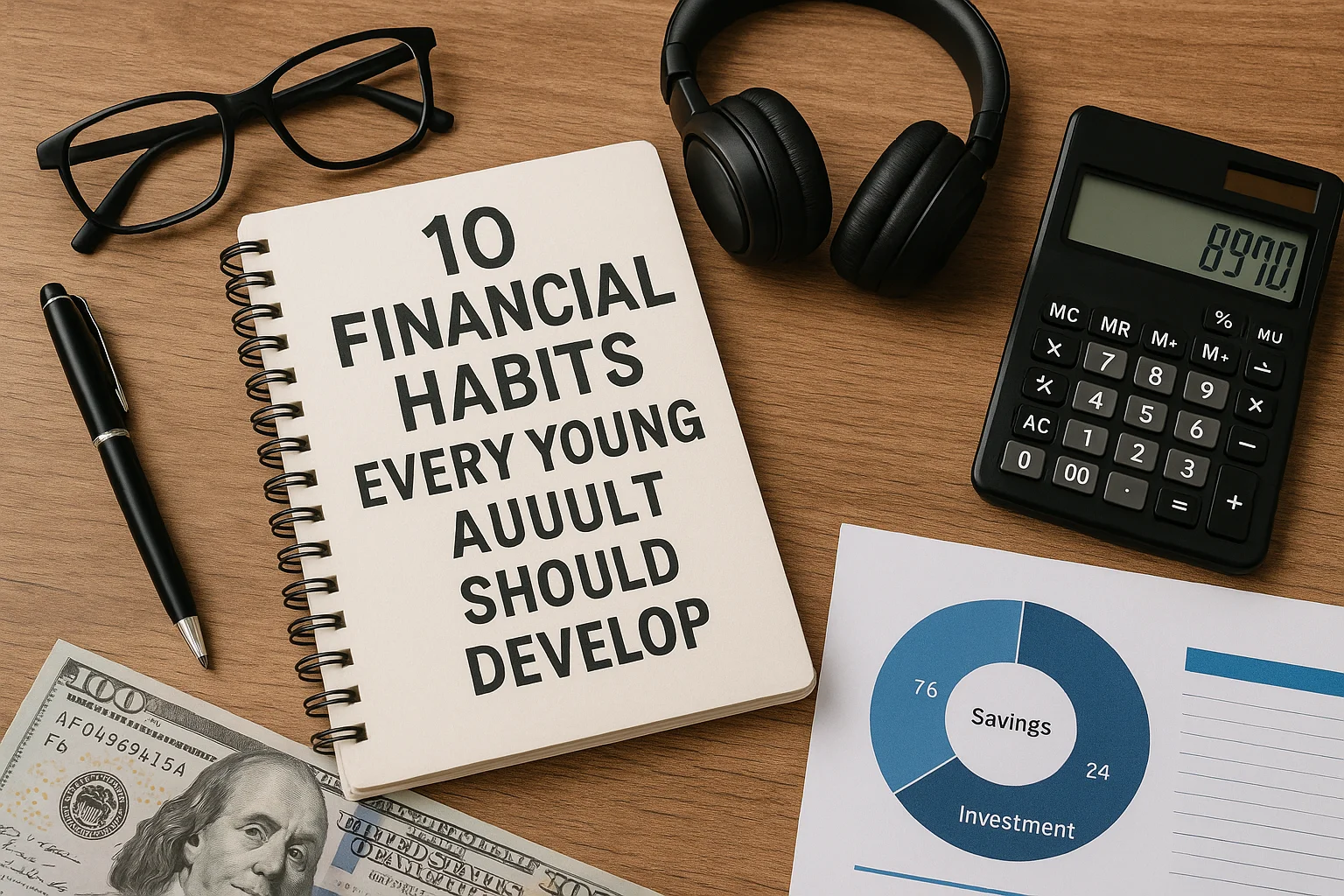In your twenties or early thirties, it’s easy to think you have plenty of time to figure out money. But the truth is, the habits you form now will shape your financial well-being for decades to come. Whether you’re just starting your first job or navigating life on your own, the right financial habits can set you on a path to stability, freedom, and even wealth.
Here are 10 financial habits every young adult should work on developing — no matter your income level.
1. Live Below Your Means
One of the most powerful financial principles is spending less than you earn. While it sounds simple, many people struggle with this basic rule. Avoid trying to match the lifestyle of your peers, especially if it involves credit card debt or unnecessary expenses.
Pro tip: Track your spending for a month and look for expenses you can trim without affecting your quality of life. That small reduction can add up quickly over time.
2. Build an Emergency Fund
Life is full of unexpected events — car repairs, job loss, medical bills. An emergency fund acts as a financial buffer so that these events don’t completely derail your finances.
Start by aiming for $500 to $1,000. Eventually, you should build up 3 to 6 months of essential living expenses in a high-yield savings account.
3. Avoid High-Interest Debt
Credit card debt is one of the most damaging financial burdens. The interest adds up quickly, and if you only make minimum payments, you could stay in debt for years.
Make it a habit to pay off your credit card balance in full every month. If you’re already in debt, focus on paying off the highest interest rate first while making minimum payments on the rest.
4. Automate Your Savings
You don’t need to be rich to save — you just need to be consistent. Automating your savings removes the temptation to spend money that should be set aside.
Options include:
- Direct deposit into a savings account
- Automatic transfers set up through your bank
- Using apps that round up purchases and save the difference
Saving becomes painless when it happens automatically.
5. Track Your Income and Expenses
Budgeting is not about restriction; it’s about awareness. You can’t manage what you don’t measure.
Use tools like:
- Google Sheets or Excel
- Free budgeting apps like Mint, EveryDollar, or YNAB
The goal is to know where your money goes and identify spending leaks before they become serious problems.
6. Start Investing Early
Time is your greatest ally when it comes to investing. Thanks to compound interest, the earlier you start, the less you’ll need to invest to build significant wealth.
Begin with low-risk options like:
- Index funds
- Retirement accounts like a 401(k) or Roth IRA
- Micro-investing apps like Acorns or Robinhood
Even investing $25 a month can grow into a meaningful sum over time.
7. Set Financial Goals
Your money needs direction. Setting clear goals helps you stay motivated and focused.
Examples of financial goals:
- Saving for a car or home
- Paying off student loans
- Building a travel fund
- Creating a retirement plan
Write down your goals and break them into monthly milestones. Track your progress and adjust as needed.
8. Educate Yourself About Money
Financial literacy is one of the best investments you can make. The more you understand how money works, the better decisions you’ll make.
Great resources include:
- Books like The Psychology of Money or I Will Teach You to Be Rich
- Podcasts like Afford Anything or How to Money
- YouTube channels like Graham Stephan or The Financial Diet
Make learning about money a regular habit, just like going to the gym or cooking meals.
9. Protect Your Credit Score
A good credit score affects everything from renting an apartment to getting a job or qualifying for a loan. Build and maintain strong credit by:
- Paying all bills on time
- Keeping credit utilization below 30%
- Not applying for too much new credit at once
Check your credit report regularly for errors using free tools like Credit Karma or AnnualCreditReport.com.
10. Don’t Compare Your Financial Journey
In the age of social media, it’s easy to feel behind when you see friends traveling, buying homes, or launching businesses. But remember — people rarely post their debts or struggles.
Your financial journey is unique. Focus on your goals, your habits, and your growth. Wealth takes time, and consistency always wins over speed.
Final Thoughts: Your Financial Future Starts Now
Building healthy financial habits early is one of the best gifts you can give your future self. These habits don’t require a lot of money — just intention, consistency, and a willingness to learn.
By living below your means, staying debt-free, saving automatically, and making smart decisions, you’re setting yourself up for a life of financial independence and peace of mind.
Start today. Even small actions — like skipping a takeout meal to save $15 — can be the first step toward a stronger, more secure future.
In God We Trust

